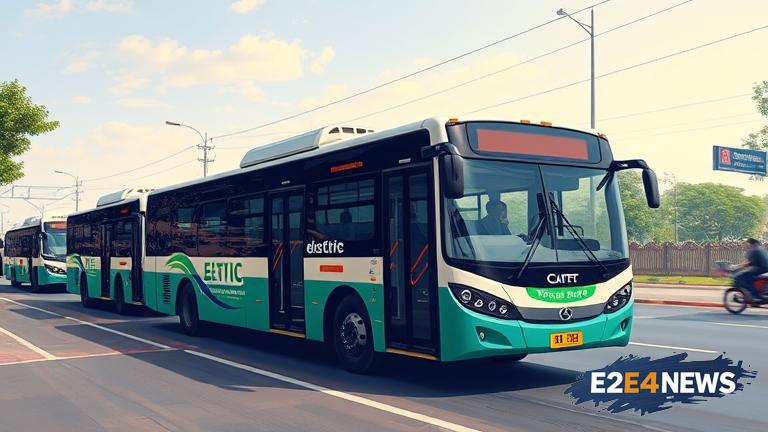In a significant move to reduce carbon emissions and transform urban mobility, the city of Delhi is all set to welcome 6000 electric buses by the end of the year. This ambitious project aims to revolutionize the public transportation system in the capital city, providing citizens with a cleaner, greener, and more efficient mode of transport. The introduction of electric buses is expected to significantly reduce the city’s reliance on fossil fuels, thereby decreasing air pollution and promoting sustainable development. The Delhi government has been working tirelessly to ensure the successful implementation of this project, with a focus on creating a robust infrastructure to support the electric buses. The city’s transport department has been actively engaged in the procurement process, with several manufacturers already on board to supply the electric buses. The buses will be equipped with state-of-the-art technology, including advanced battery systems and charging infrastructure. The government has also announced plans to set up a network of charging stations across the city, ensuring that the electric buses can operate seamlessly. The introduction of electric buses is expected to have a positive impact on the city’s environment, with a significant reduction in greenhouse gas emissions and air pollution. The project is also expected to generate employment opportunities, with several companies already expressing interest in setting up manufacturing units in the city. The Delhi government has also announced plans to provide training to drivers and maintenance staff, ensuring that they are equipped to handle the new electric buses. The city’s residents are eagerly awaiting the introduction of the electric buses, with many expecting a significant improvement in the quality of public transportation. The project is also expected to have a positive impact on the city’s economy, with several companies already investing in the electric vehicle sector. The Indian government has been actively promoting the adoption of electric vehicles, with several incentives and subsidies announced to encourage manufacturers and consumers. The city of Delhi is expected to serve as a model for other cities in India, with several states already expressing interest in replicating the project. The introduction of electric buses is also expected to have a positive impact on the city’s traffic congestion, with several routes expected to be dedicated to the electric buses. The government has also announced plans to introduce a smart traffic management system, which will help to optimize traffic flow and reduce congestion. The project is expected to be completed in several phases, with the first phase expected to be launched by the end of the year. The city’s transport department has been working closely with several stakeholders, including manufacturers, suppliers, and residents, to ensure the successful implementation of the project. The introduction of electric buses is expected to be a major milestone in the city’s journey towards becoming a sustainable and environmentally-friendly city. The project is also expected to have a positive impact on the city’s reputation, with several international organizations already taking notice of the city’s efforts to reduce carbon emissions. The city of Delhi is expected to become a hub for electric vehicle manufacturing, with several companies already expressing interest in setting up units in the city. The government has also announced plans to provide incentives to companies that invest in the electric vehicle sector, including tax breaks and subsidies. The introduction of electric buses is expected to be a major step towards reducing the city’s carbon footprint, with several other initiatives already in the pipeline to promote sustainable development.
